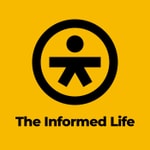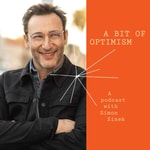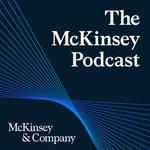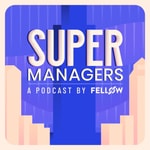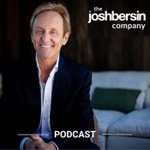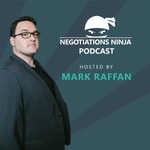Digital HR Leaders with David Green – Détails, épisodes et analyse
Détails du podcast
Informations techniques et générales issues du flux RSS du podcast.
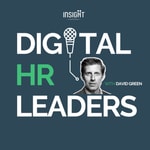
Digital HR Leaders with David Green
David Green
Fréquence : 1 épisode/9j. Total Éps: 259

Hosted on Acast. See acast.com/privacy for more information.
Classements récents
Dernières positions dans les classements Apple Podcasts et Spotify.
Apple Podcasts
🇺🇸 États-Unis - management
31/07/2025#72🇺🇸 États-Unis - management
30/07/2025#87🇫🇷 France - management
30/07/2025#99🇬🇧 Grande Bretagne - management
29/07/2025#72🇫🇷 France - management
29/07/2025#87🇫🇷 France - management
28/07/2025#71🇫🇷 France - management
27/07/2025#50🇺🇸 États-Unis - management
26/07/2025#91🇫🇷 France - management
26/07/2025#41🇺🇸 États-Unis - management
25/07/2025#77
Spotify
Aucun classement récent disponible
Liens partagés entre épisodes et podcasts
Liens présents dans les descriptions d'épisodes et autres podcasts les utilisant également.
See all- https://www.workday.com/
57 partages
- https://www.visier.com/
48 partages
- https://www.orgvue.com/
40 partages
- https://www.linkedin.com/in/daveulrichpro/
36 partages
- https://www.linkedin.com/in/amycedmondson/
21 partages
- https://www.linkedin.com/in/melissadaimler/
11 partages
Qualité et score du flux RSS
Évaluation technique de la qualité et de la structure du flux RSS.
See allScore global : 63%
Historique des publications
Répartition mensuelle des publications d'épisodes au fil des années.
How Learning to Fail Can Help People and Organisations to Thrive (an Interview with Amy Edmondson)
Saison 40 · Épisode 200
mardi 30 juillet 2024 • Durée 39:27
What does it mean to ‘fail’ well? How can you use the art of ‘failing’ to create a thriving organisation? What metrics do you need to gauge whether you are failing well?
As we mark the 200th episode of the Digital HR Leaders podcast, host David Green welcomes back Amy Edmondson, a renowned professor at Harvard Business School and a leading voice on psychological safety, to explore these very questions. Tune in as they discuss:
- The evolution of psychological safety in a post-pandemic world
- How to effectively embed psychological safety into organisational culture to support innovation and healthy experimentation
- Insights from Amy's latest book, "Right Kind of Wrong: The Science of Failing Well," including the three failure archetypes
- Strategies for HR to overcome the fear of failure
- The importance of distinguishing between good and bad failures
- Advice for HR and people leaders on embedding a failure culture within their organisations
- How data can be used to gauge whether an organisation is "failing well"
Whether you are an HR Leader aiming to innovate and overcome growth challenges, or are simply interested in the science of psychological safety, this episode is a must-listen.
Support from this podcast comes from HiBob, who brings us Bob, the most usable enterprise HCM according to Nucleus Research. Bob is rated the most usable HCM solution in Nucleus Research's 2024 Enterprise HCM Value Matrix.
Bob delivers tangible results for organisations through ease of use and fast setup, like for this US-based CRM vendor that achieved a 228% ROI. Need proof? Read how Bob increased productivity and reduced software costs by downloading the Nucleus ROI study here.
Links to Resources:
- Amy Edmondson on LinkedIn: Amy Edmondson
- Amy’s Book: Right Kind of Wrong: The Science of Failing Well
- HiBob Platform: HiBob
- MyHRFuture Academy: MyHRFuture
- Insight222: Insight222
Hosted on Acast. See acast.com/privacy for more information.
How to Create a Flexible Work Model that Enhances Inclusion and Employee Experience (an Interview with Heidi Manna)
Saison 40 · Épisode 199
mardi 23 juillet 2024 • Durée 41:05
Do your employee experience efforts cater to the diverse workforce that make up your organisation’s ecosystem? This episode of the Digital HR Leaders podcast looks into this question through the lens of Heidi Manna, Chief People Officer at Jazz Pharmaceuticals.
Through innovative employee listening strategies and data-driven approaches, Heidi has achieved great success creating an inclusive employee experience amongst the disparate teams at Jazz Pharmaceuticals. So tune in to learn more about:
- How Jazz Pharmaceuticals listens to its employees and crafts a clear value proposition to drive engagement and satisfaction
- The company’s flexible work model and its approach towards intentional collaboration
- Insights into the metrics and methods used to evaluate the effectiveness of its flexible work model and employee experience strategies
- Strategies for constructing a compelling business case for flexible work models and gaining support from the C-suite
- How Jazz Pharmaceuticals ensures a positive experience for all employees, including those in on-site and customer-facing roles
- Heidi’s key takeaways on maintaining clarity, adaptability and a growth mindset to foster a robust and inclusive workplace
If you are an HR Leader looking to elevate your employee experience strategies, this episode promises to be an inspirational listen.
Support from this podcast comes from HiBob, who brings us Bob, the most usable enterprise HCM according to Nucleus Research. Bob is rated the most useable HCM solution in Nucleus Research's 2024 Enterprise HCM Value Matrix.
Bob delivers tangible results for organizations through ease of use and fast setup, like for this US-based CRM vendor that achieved a 228% ROI. Need proof? Read how Bob increased productivity and reduced software costs by downloading the Nucleus ROI study here.
Links to Resources:
- Heidi Manna on LinkedIn: Heidi Manna
- Jazz Pharmaceuticals: Jazz Pharmaceuticals
- HiBob Platform: HiBob
- MyHRFuture Academy: MyHRFuture
- Insight222: Insight222
Hosted on Acast. See acast.com/privacy for more information.
Understanding the Build vs Buy Dilemma in HR Tech (an Interview with Craig Starbuck)
Saison 38 · Épisode 190
mardi 7 mai 2024 • Durée 47:15
As the world of HR and people analytics evolves, how can we best leverage the tools, insight and technologies available to us?
In this thought-provoking episode of the Digital HR Leaders podcast, host David Green sits down with Craig Starbuck, Head of People Analytics at Roku, to explore the critical decision every HR leader faces: should you build your analytics capabilities in-house or buy them from external providers?
Leaning in on his ten-year background building and leading people analytics functions to excellence, Craig discusses the benefits and challenges of each option, guiding listeners through the strategic considerations vital for making informed decisions.
But this is not the only topic of discussion. The episode also delves into:
- The importance of aligning people analytics with finance to drive substantial improvements in business outcomes
- Framing analytics insights in the language of the business to effectively support strategic decision-making
- How Craig is integrating passive and active data at Roku across a multitude of use cases
- Insights from Craig's book, "The Fundamentals of People Analytics: With Applications in R" on upskilling HR teams in advanced analytics tools and methodologies
This episode is proudly supported by Worklytics, a people-centric analytics solution that combines passive listening with Organisational Network Analysis (ONA) to help you understand how work is getting done.
Curious to see how it works? Worklytics is offering a free Collaboration Analysis to the first 10 qualified companies who express interest by clicking on the following link: www.worklytics.co/DigitalHRLeaders
Hosted on Acast. See acast.com/privacy for more information.
Does the Future of Work Mean Work Without Jobs? (Ravin Jesuthasan and John Boudreau)
Saison 20 · Épisode 100
mardi 15 mars 2022 • Durée 55:50
This week, we have got two guests on the show: Ravin Jesuthasan, Senior Partner at Mercer and John Boudreau, Professor Emeritus of Management and Organisation at the University of Southern California, The Marshall School of Business, who are releasing a new book, their fourth together, called Work Without Jobs
In this episode we will explore, with John and Ravin, what they are calling a new work operating system, to help people to better understand the link between qualifications, learning and jobs and move away from the current system.
Throughout the episode, John and Ravin discuss:
- How they see the future of work and jobs evolving, including the core principles behind their new work operating system
- Examples of organisations like Unilever, Genentech, and DHL, who have already started to move towards this future system
- The impact on leadership of moving to a new work operating system and what that entails for existing leadership behaviours
- What this means for HR, people analytics, and society in general, and look at how you can get started with adopting this new way of working
Support for this podcast comes from iPsychtec. You can learn more by visiting https://ipsychtec.com/
Hosted on Acast. See acast.com/privacy for more information.
How Unilever is Creating New Ways of Working for Its Employees (Placid Jover, Unilever)
Saison 20 · Épisode 99
mardi 8 mars 2022 • Durée 43:58
This week’s podcast guest is Placid Jover, VP of HR for Latin America at Unilever.
Throughout the episode, Placid and I discuss:
- His perspective on how the people analytics field has evolved over the last decade
- How Unilever is tackling inclusivity, in particular when it comes to age and changing workforce demographics
- The new innovative model that Unilever has launched called, U-Work, that helps its workforce to work, earn, learn, and live differently
- The impact of the pandemic on the advancement of new working models for the future of work
- How behavioural science can help improve the workplace
Support for this podcast comes from iPsychtec. You can learn more by visiting https://ipsychtec.com/
Hosted on Acast. See acast.com/privacy for more information.
How to Measure Culture and Organisational Behaviour (Hani Nabeel, iPsychTec)
Saison 20 · Épisode 98
mardi 1 mars 2022 • Durée 50:38
This week’s podcast guest is Hani Nabeel, Chief Behavioural Scientist at iPsychTech, who discusses how behaviours are the leading indicator of culture, and why he thinks it is time to stop relying on measuring the outcomes of culture, like engagement, during a culture transformation.
Throughout the episode, Hani and I discuss:
- The use of neural thinking, neural technology, and predictive analytics to measure culture
- How to connect culture to business outcomes and demonstrate the value of culture transformation
- Various case studies from companies who are tackling cultural transformation and measuring success
Support for this podcast comes from iPsychtec. You can learn more by visiting https://ipsychtec.com/
Hosted on Acast. See acast.com/privacy for more information.
Why is Organisational Behaviour Important in the Workplace? (Nigel Guenole, Goldsmiths)
Saison 20 · Épisode 97
mardi 22 février 2022 • Durée 45:08
This week’s podcast guest is Nigel Guenole, Director of Research and Ethics at the Institute of Management at Goldsmiths, University of London and a former colleague from our respective time at IBM.
Throughout the episode Nigel and I discuss:
- How the field of organisational behaviour has evolved over the last few years
- What the value of the field is to the enterprise and what some of the new opportunities are
- The capabilities that companies should build in organisational behaviour and how to do this
- Nigel's recent research, looking into emerging analytical methods, skills identification, and building a skills ontology
Support for this podcast comes from iPsychtec. You can learn more by visiting https://ipsychtec.com/
Hosted on Acast. See acast.com/privacy for more information.
Addressing the Needs of Neurodiverse Indviduals in the Workplace (Nancy Doyle, Genius Within)
Saison 20 · Épisode 96
mardi 15 février 2022 • Durée 01:03:56
This week’s podcast guest is Dr. Nancy Doyle, Chief Research Officer at Genius Within and Co-Director at the Centre for Neurodiversity at Work.
In our conversation, Nancy and I discuss:
- That 15 to 20% of the population are neurodiverse, so we are all managing neurodivergent people in our organisations, whether we realise it or not
- How to build organisations that are inclusive to the needs of neurodivergent people, including the most important touch points in the employee journey that should be addressed
- The business benefits of hiring neurodiverse individuals, including examples from organisations such as Microsoft
- The research that Nancy, is currently heading up at the Centre for Neurodiversity at Work, including the intersection of exclusion of autistic people across the globe and autistic people's experience of bringing their authentic selves to work
- How practitioners can stay up to date with research in the academic sphere
Support for this podcast comes from iPsychtec. You can learn more by visiting https://ipsychtec.com/
Hosted on Acast. See acast.com/privacy for more information.
How Novartis is Building a Skills Operating System for Workforce Planning (René Gessenich, Novartis)
Saison 19 · Épisode 95
mardi 8 février 2022 • Durée 42:12
This week’s podcast guest is René Gessenich, Head of Strategic Workforce Planning at Novartis, who shares the work that he’s been doing to build a skills operating system for workforce planning at Novartis.
In this episode, René and I discuss:
- Why having a robust skills ontology is so important
- How to incorporate internal and external skills data, in a single skills ontology
- Novartis's approach to skills-based workforce planning with some examples of their targeted approach
- Specific advice for organisations looking to adopt a skills-based approach to workforce planning
Support for this podcast comes from Medallia. You can learn more by visiting https://www.medallia.com/employee-experience/.
Hosted on Acast. See acast.com/privacy for more information.
Rethinking Your Learning Strategy to Drive Organisational Performance (Charles Jennings, 70:20:10 Institute)
Saison 19 · Épisode 94
mardi 1 février 2022 • Durée 54:46
This week’s podcast guest is Charles Jennings, Partner at the 70:20:10 Institute. Charles is a big believer in getting the learning context right by better embedding learning into work, often called informal learning, experiential learning, or real learning. While the 70:20:10 model was designed to promote this approach, many organisations adopting the model are still falling short of the mark. Charles and I dig into this in more detail throughout the episode, with many insights, both from the academic literature and practical case studies from organisations.
In this episode, we discuss:
- How to re-think our traditional conceptions of learning, and better embed up-skilling into daily work and social interactions
- Focusing on performance analysis over skills or learning analysis, and how organisations can achieve this with examples from a couple of companies
- The relevance of the 70:20:10 model for learning today and getting L&D teams back on track, thinking about performance and impact instead of viewing learning itself as the end goal
Support for this podcast comes from Medallia. You can learn more by visiting https://www.medallia.com/employee-experience/.
Hosted on Acast. See acast.com/privacy for more information.

